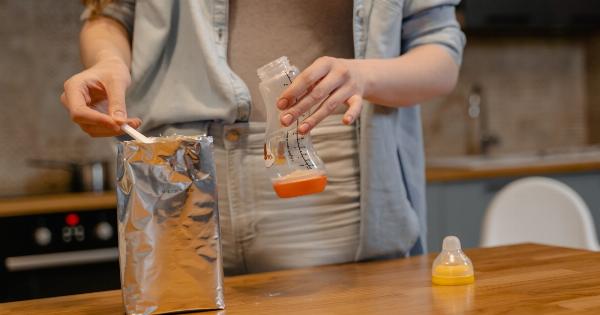Puberty is a natural and inevitable process that every girl goes through as she transitions from childhood to adulthood. It is a time of significant physical, emotional, and psychological changes that typically occurs between the ages of 9 and 16.
Understanding and navigating this transformative journey is essential for young girls, their parents, and caregivers. In this article, we will explore the various stages and aspects of the puberty journey of a girl.
The Onset of Puberty
Puberty begins when the body starts producing hormones that trigger the development of secondary sexual characteristics.
The hypothalamus, a region in the brain, releases gonadotropin-releasing hormone (GnRH), which stimulates the pituitary gland to produce follicle-stimulating hormone (FSH) and luteinizing hormone (LH). These hormones, in turn, stimulate the ovaries to produce estrogen and progesterone, leading to the physical changes associated with puberty.
Physical Changes
One of the primary physical changes during puberty is the growth spurt. Girls experience a rapid increase in height and weight as their bones elongate and their bodies mature. Breasts begin to develop as mammary glands enlarge, and the areolas darken.
The pelvis widens in preparation for childbirth. Body hair, including pubic hair and underarm hair, starts to grow, and the skin becomes oilier due to increased sebum production.
Menstruation and Reproductive System
Menstruation, also known as a period, is one of the most significant milestones in a girl’s puberty journey. It typically occurs between the ages of 10 and 15 and marks the beginning of a girl’s reproductive ability.
During menstruation, the lining of the uterus sheds, resulting in vaginal bleeding. Menstrual cycles vary in duration and flow, and they often take a few years to become regular.
The reproductive system also undergoes changes during puberty. The ovaries, which were dormant until this point, start releasing mature eggs in a process called ovulation.
The uterus becomes capable of supporting a developing fetus, and the vagina elongates and becomes more elastic.
Emotional and Psychological Changes
Puberty not only brings physical changes but also significant emotional and psychological transformations. Hormonal fluctuations can affect mood and cause mood swings, irritability, and heightened emotional sensitivity.
Peer pressure, body image concerns, and newfound social dynamics can impact a girl’s self-esteem and confidence during this period. It is crucial to provide emotional support and guidance to help girls navigate these changes.
Sexual and Personal Identity
As girls progress through puberty, they start exploring their sexual and personal identity. They may experience sexual attraction towards others and begin to understand their own sexual orientation.
This period of self-discovery can be both exciting and confusing. Open and honest communication with parents, guardians, or trusted adults is crucial in providing support and guidance.
Education and Awareness
Education plays a vital role in empowering girls to embrace and understand their puberty journey. Teaching girls about the changes occurring in their bodies, menstrual hygiene, and sexual health is crucial for their overall well-being.
By providing accurate information and breaking taboos surrounding menstruation and sexuality, society can foster positive attitudes towards puberty and create an environment of support and acceptance.
Healthy Habits and Self-Care
Puberty is a time when girls should develop healthy habits and focus on self-care. This includes maintaining personal hygiene, engaging in regular physical activity, and eating a balanced diet.
Adequate sleep is essential for the body to adapt and grow during this transformative phase. Encouraging self-acceptance and promoting body positivity can also help girls develop a healthy body image.
Puberty Challenges and Concerns
While puberty is a natural process, it can occasionally be accompanied by challenges and concerns. Some girls may experience early or delayed puberty, which can impact their emotional well-being and social interactions.
Common concerns include acne, body odor, menstrual cramps, and irregular periods. It is important to address these issues and seek medical advice when necessary.
Support System and Resources
A robust support system and access to appropriate resources are crucial during the puberty journey. Parents, guardians, friends, and educators need to provide a safe space for girls to discuss their concerns and ask questions.
Health professionals, such as pediatricians and school nurses, can offer expert guidance and advice. Online resources, books, and workshops specifically tailored for girls going through puberty can also be valuable sources of information.
Celebrating Womanhood
Puberty signifies the transition from girlhood to womanhood, and it is essential to celebrate this journey. Society should promote positive attitudes towards menstruation, female bodies, and the overall growth and development of girls.
By embracing and destigmatizing puberty, we can empower girls to embrace their bodies, assert their rights, and lead healthy, fulfilling lives.






























